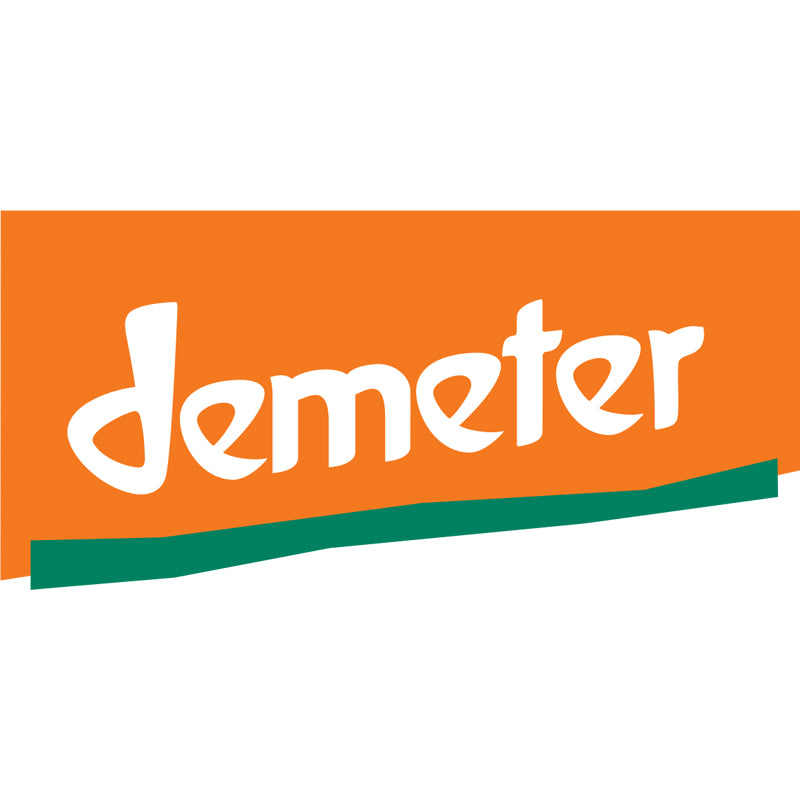Your Cart is Empty
FAST AND FREE SHIPPING ON MULTI-PACKS

Food labels have become an amalgam of information and deceptive verbiage. It can be challenging to determine what foods are organic or without ingredients you might consider harmful. Even grocers who specialize in natural, organic food contain aisles full of difficult to discern packages.
Clean eaters strive to obtain products that are made up of responsibly grown, safe, and wholesome ingredients. As a parent, this can become even more important when shopping for baby formula and foods. Brands like Holle, considered uber-organic, work toward taking the guesswork out of organic baby food shopping.
As a Demeter-certified biodynamic line of products, parents can find comfort in knowing where their food is coming from and how it is produced. How does Demeter stand out amongst other organic certifications? Here we will discuss what qualifies for the distinction of Demeter and how Holle products get to those high standards.
Demeter Defined
Demeter Biodynamic farming guarantees that foods sporting its label come from ecologically mindful and sustainable farms. From planting to processing, no artificial materials are added. Thus, those purchasing such foods and food products can feel comfortable that there are no “secrets”.
Defining Demeter Biodynamics is best done by first clarifying what biodynamic farms are. These farmers focus on self-sustaining systems that avoid outside inputs into their produce and goods. Biodynamic food growers pride themselves on their majority self-contained farms.
Demeter standards are rigorous and go far beyond typical organic certification protocols. First, farmers are prohibited from using any of the following:
Organic farming is certainly a step in the right direction toward responsible food production. Unfortunately, organic certification standards do not take the necessary steps to eliminate many things that could be disturbing to purchasers.
Demeter farming demands farmers try to be as self-sustaining as possible while practicing safe, clean behaviors. The treatment of manure is a prime example of how Demeter takes clean to the next level. Many farms including organics apply raw manure taken directly from barns and pens. Demeter Biodynamic farms require the manure be properly composted first, increasing the sanitation and effectiveness of the natural fertilizer.
Ethical Treatment of Animals
Animals are the heart and soul of Demeter farms. Even farms primarily focused on growing produce rely on the animals for their manure. Demeter standards indicate that half of the feed must come directly from the farm it is raised on. In addition, 30% of the remaining half must be Demeter certified feed and the last 20% must be organic at a minimum.
Beyond being well-fed with responsibly produced feed, the animals on Demeter farms are treated exceedingly better than on typical farms. Square footage requirements, outdoor space, and the ability to live as they would naturally are examples of how animals are valued on Demeter Biodynamic farms.
While most consumers would assume that organic farms practice fair and humane animal care, those farms are not held to the same standards that limit certain physical modifications. Organic standards allow farms to perform tail docking, dehorning, and beak trimming.
Demeter also prohibits other behaviors that organics allow, including hormonal treatments used for reproduction purposes, synthetic amino acids added to feed, and the introduction of antibiotics to enhance growth.
Responsible Treatment of the Environment
Biodiversity is a staple for Demeter Biodynamic farmers. This allows for the protection of resources and the elimination of the need to unnaturally enhance farmlands.
A minimum of 10% of Demeter farms is set aside as a natural reserve. No forests can be cleared, and the ecology of the region must be considered when developing land for Demeter farming.
Demeter Biodynamic farmers understand the value of the land used for farming would be gone without the surrounding natural resources. Thus, much effort is put toward protecting the very nature that supports the growth of living things.
Demeter Standards Result in Consumer Confidence
The confidence of knowing that your food and products were produced in a responsible, clean, and naturally healthy way is invaluable. This is magnified when considering the food we offer children, who are most developmentally vulnerable to toxins.
Demeter Biodynamic farming practices go above and beyond organics to guarantee ingredients that are clean and natural. Processing standards also apply to Demeter products, making a Demeter certified formula like those from Holle worthy of confidence.
Obviously, chemical processing and artificial additives are eliminated from the production of Demeter products. Demeter standards go so far as to rid phosphates from baked good by prohibiting raising additives that contain them.
Beyond the enhanced standards for additives, Demeter also limits the degradation of products like freezing juice concentrates for later use. It is clear that Demeter standards positively impact the end product.
Uber-organic foods like those offered by Holle provide a solution to the confusion of organic food shopping. Demeter standards ensure clean, healthy, and responsibly produced products that can be purchased and consumed with confidence.